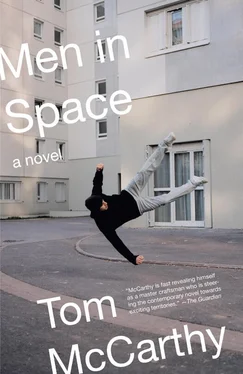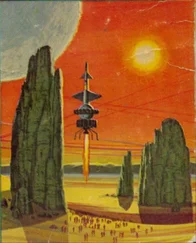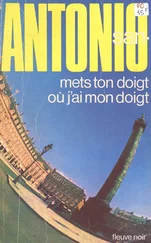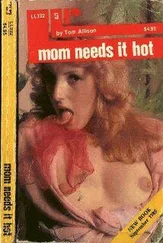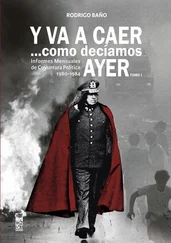* * * * *
There’s a bookstall at the top of the steps exiting the A line to Dejvická, on the near side of the overground tracks, by the level crossing: as promised, Ilievski’s waiting for him there, perusing a red hardback. Anton walks slowly up behind him and leans over his shoulder.
“It’s in Italian!”
“What the …” Ilievski slams the book shut, spins around, then sighs. “Jesus Christ, Anton! Do you want to kill me? Here,” he murmurs, keeping his head low, gesturing with his eyes at Anton’s chest so that at first Anton thinks there must be a mark of some type on his shirt, a blob of ketchup or something — until he realizes that Ilievski’s trying to indicate some spot behind him, a spot with eyes from whose gaze he’s hiding his own, “how many of them have you got with you?”
“How many … Oh, right. Two.”
“Two! I’ve only got one, as far as I can make out. What’s so important about you all of a sudden?”
Black humour, this; they both smile. He just noticed it this afternoon, not half an hour ago, as he stepped into the carriage at Jiřího z Poděbrad: a second one had joined in. For the first couple of days after being released, after Ilievski told him that they’d each be trailed constantly from now on until either they or the police retrieved the real painting, he was paranoid, saw undercover agents skulking around every stretch of pavement pretending to buy cigarettes or newspapers or to be making phone calls. But then he realized that there was only one. It didn’t take a great amount of cunning to flush him out from all the other, neutral faces hanging around him like human camouflage: these would change, but his was always there. In Sofia, when they were maybe seven or eight, Anton and the other kids in his street used to trail people for kicks, crouching behind dustbins and parked cars, dashing from one doorway to another: the whole point was not to be seen. But this guy doesn’t give a damn that Anton knows he’s with him. Not that he confronts him with his presence: he’s very unobtrusive, never coming too close, never eyeballing or even looking at him — but then never losing him either. If they’re in a tram or a metro carriage he’ll read his paper, genuinely read it, checking off what Anton presumes are racing or football odds with a pencil until Anton gets out; then he’ll fold the paper, slip the pencil back into his pocket and follow him. If Anton eats, he eats; if not, he doesn’t. He doesn’t care where they go, or how long it takes. It’s been dawning on Anton over the last day or so that other people, by comparison, accord him considerably more importance: they will interact with him, either making eye contact or shyly turning their eyes to the floor if he looks at them, moving aside or deciding to hold their ground if they’re blocking his path, racing him for empty seats in trams and on the metro. This man enters into no such congress with him. It’s his gaze, not theirs, which is the truly neutral one: it makes Anton feel half dead.
But then just twenty minutes ago, after the two of them had settled down into their seats, after the prerecorded message had informed them that the doors were about to close (Helena loves this Czech construction: It’s a participial adjective , she said when they first heard it: “in a state of imminence as far as the act of closing is concerned.” You get them a lot in Julius Caesar’s Wars …) and they’d started sliding shut, another man was catapulted through them. He skidded across the carriage’s floor and almost fell across Anton, then recoiled immediately, hiding his face as he backed off. As they rattled through the darkness he continued to snatch peeks at Anton from behind a paper which he obviously wasn’t reading. His eyes had a glazed, disoriented look. When they arrived at Hradčanská, the three of them — Anton, his tail and this clown — got off. Anton thought at first that he was mad, but noticed that his real tail seemed unsettled by his presence; as they rode the escalator he even gestured at him to go away, silently snarling at him when he thought Anton wasn’t looking. That lieutenant, or the thin, dark-haired man, or some commissioner in some office in the building on Bartolomějská, must have put a tail on without checking first whether one of the others had. They can throw coffee at you when they’ve got you in a locked room, threaten you with prison and who knows what else, but they’re idiots really …
A bell starts ringing up above them to the right. Ilievski puts his book down and turns towards the tracks. The bell’s attached to a white wooden signal cabin on the tracks’ far side, just a few metres away. A short, fat woman in grey uniform and a blue hat has emerged from the cabin and is now turning a handle, cranking it round so that two wooden barriers descend jerkily from posts on each side of the tracks, blocking the road and pavement. Even after they’ve come right down some pedestrians duck beneath them and walk across. Anton looks down the line towards Dejvická Station, then down the other way towards Letná: there’s no train coming yet.
“Shall we …” He makes to duck beneath the barrier as well, but Ilievski holds him back.
“No. Wait. I want us to lose these people for a while so we can go inside somewhere and talk. It’s cold out here.”
It is cold. The pavement, even where the snow’s been cleared, is covered in a thin, slippery film of ice. You wouldn’t want to fall, here of all places. The train’s coming into view now, pulling out of Dejvická. Anton wraps his gloved hands round the barrier, placing both in white sections, shuffling them along until they’re equidistant from the red sections on either side. On the far side of the barrier he spots Janachkov walking briskly past a cello which is standing in the snow, apparently abandoned, stepping into the Sokolovna Restaurant.
“Oh my God! There’s …”
“Yes, I see him. I told him to try to meet us, but not in that one … Oh, look there!”
Another man has come around the corner of Bubenečská and Dejvická, strode past the cello and then stopped. He looks around intently for a few seconds, then seems to receive a signal from a spot on his side of the tracks, just to their right, where several cars are parked. In there? he mouths, pointing to the Sokolovna. Then, apparently receiving confirmation, he turns, walks up the steps and disappears inside just as the train comes past them.
“There’s a place …” Ilievski stops and looks to his left. Anton’s second tail is leaning on the barrier with his head down, slightly rolling, as though he were about to be sick. The first one’s further back, behind the bookstall. “No, look forwards.” His voice drops again. “There’s a place a few streets down, a little restaurant called U Kočky, on this street called V. P. Čkalova. If you …”
“I know that street.” The train is moving slowly. It’s one of those local trains, not a sleek international one. Local trains always look slightly like toy trains: brighter colours, bigger windows. Anton can see the passengers sunk in their chairs inside each carriage, looking out at the pedestrians waiting behind the barriers on both sides of the line, or reading — then, suddenly, through the windows in the bit that’s still again, beside the Sokolovna and the cello, he catches sight of … Was it? A windowless segment of train has come and blocked his view across. The yellow panels of the mail or buffet or bicycle carriage glide by, give over to windows once again, and Anton can now clearly make out Milachkov, who seems to be following the guy who followed …
“Oh, this is ridiculous!” Ilievski’s seen him too. “Did you just see …”
“Milachkov, yes!”
Читать дальше
